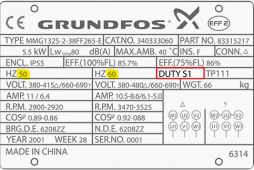fromport
Solar Addict
Really depends if they have a transformer or a switched power supply in it.What would happen to the loads if you gave them 60 Hz?
Another potential issue is 240V split-phase vs. 240V single phase. But some generators may be floating and won't care if you ground one side. (note that most US breakers are 120V, but ganged 2-pole breaker can handle 240V.)
A 50 Hz transformer will probably work at 60Hz, it might not be at it's most efficiency.
My guess a switched power supply couldn't care less about the input freq. Most of them rectify it first any way.





